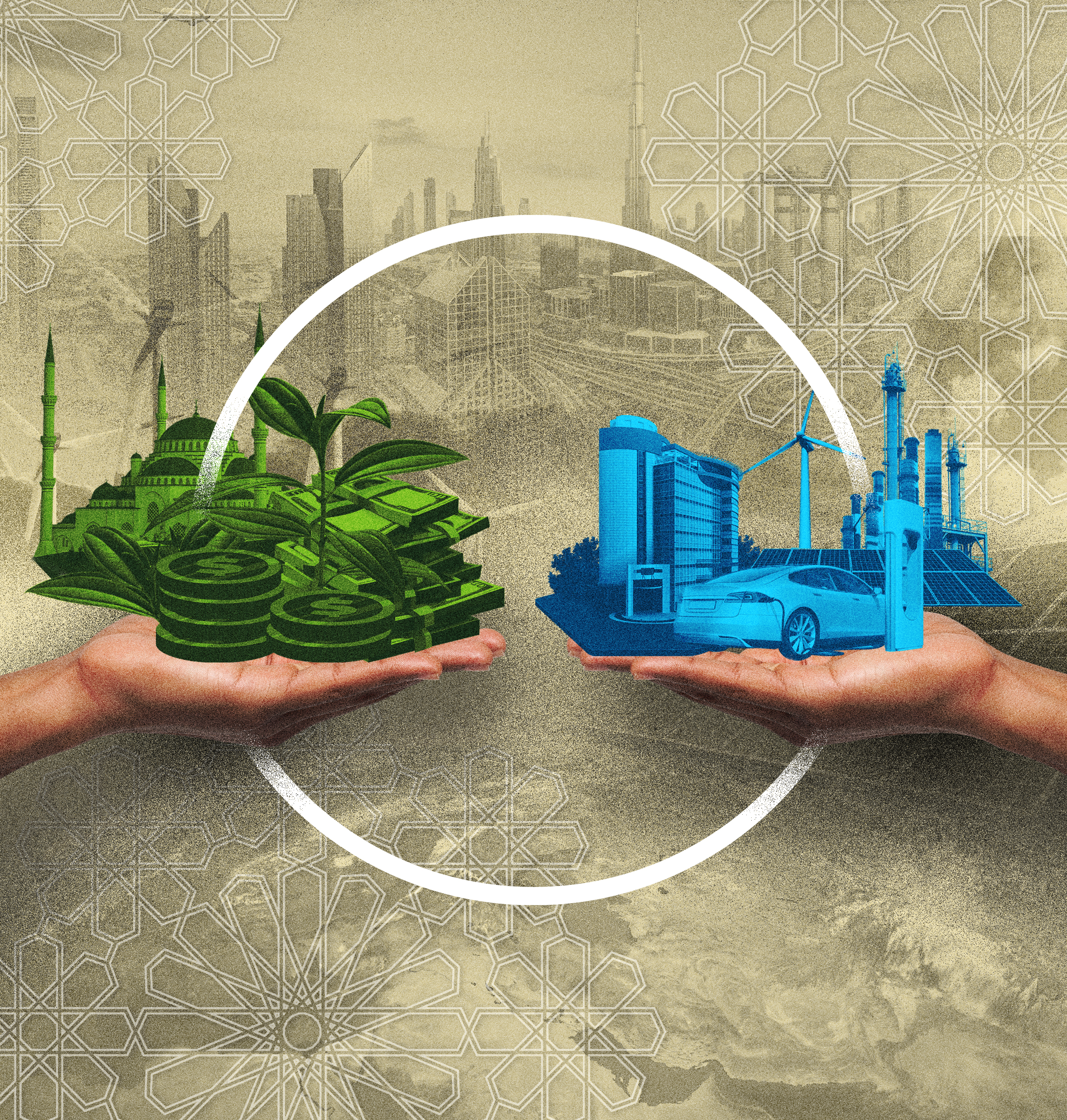Middle East promising ground for Islamic finance

Sukuk and green bonds are becoming attractive alternatives to conventional lending
In recent years, the construction landscape in the region has experienced significant growth, driven by the launch of ambitious projects and the hosting of events. In 2023, a record $235bn-worth of contracts were awarded in the GCC, over $60bn more than the previous high of $171bn recorded in 2014.
This step change in activity levels requires a rethink of how projects are financed.
“The construction industry is at a very interesting juncture in the region,” says Iqbal Khanyari, head of wholesale Islamic at Mashreq, speaking during a Mashreq MEED webinar on the regional construction market.
“With all the megaprojects coming into the region, the construction industry is growing in importance. Today, it’s about 10% of GDP and is in no way looking to go in any other direction,” he adds.
The growth in the market underscores the importance of diverse funding mechanisms, including Islamic finance, to support and sustain this momentum.
Sukuk for construction projects
One of the key differentiators of Islamic finance is its emphasis on ethical investment.
“It restricts investments in sectors such as alcohol and gambling to encourage fairness, transparency and social responsibility,” says Khanyari.
“The construction industry with its structured, ring-fenced, cash flow-based project financing inherently supports these principles.”
Sukuk are sharia-compliant financial instruments issued by companies or governments to raise capital from investors for specific projects.
These securities are structured according to a contract between the issuer and the investors, detailing the terms and conditions.
According to S&P Global Ratings, the sukuk market has also performed strongly, with total issuance reaching $46.8bn by the end of March 2024, compared to $38.2bn in the same period the previous year.
Unlike conventional bonds, sukuk are compliant with Islamic finance principles. They avoid interest payments and instead provide returns derived from the actual performance of the underlying asset or project.
Each sukuk has a defined financial value and a set maturity period, during which investors earn returns based on the revenue generated by the project or asset being financed.
This structure not only facilitates project financing, but also ensures that investments adhere to ethical and religious standards in Islamic finance.
Better outcomes
Khanyari says there are certain other main avenues through which Islamic finance can benefit construction projects.
Firstly, the availability of capital from large Islamic banks with substantial resources makes them a significant supply-driven force in the market.
These banks have extensive financial reserves and are actively looking to invest in projects that align with sharia principles.
Their focus on asset-backed financing and profit-sharing models provides stable and ethical funding sources for construction projects. This supply of capital from Islamic banks helps meet the growing demand for infrastructure development and supports the execution of large-scale construction projects.
Secondly, Islamic finance products tailored specifically for the construction industry have evolved to match or even surpass conventional lending in terms of competitiveness.
These products offer competitive pricing through profit-sharing mechanisms and asset-backed financing, which can match or better traditional loan rates.
Flexible financing structures such as Murabaha, Ijara and Musharaka are customised to meet project-specific needs, providing suitable payment schedules and risk management options.
The emphasis on risk-sharing reduces the financial burden on developers, while asset-backed financing provides more security and stability. Additionally, the ethical and socially responsible nature of Islamic finance attracts a broader range of investors, enhancing liquidity and funding availability.
The growth of the sukuk market, government and institutional support, and continual innovation in financial products further bolster the appeal of Islamic finance. This combination of factors makes Islamic finance a viable and attractive alternative to conventional lending for construction projects.
Developers are already taking advantage of Islamic finance offerings.
To name a few, UAE-based master real estate developer Arada raised $400m through sukuk to partially fund its projects across the UAE. This five-year fixed-rate sukuk attracted strong demand, oversubscribed by 3.5 times, marking the first issuance under Arada’s new $1bn sukuk programme.
Similarly, Dubai-based real estate developer Sobha Realty issued a $300m sukuk last year, featuring a call option, a first for a GCC sub-investment grade benchmark-sized sukuk.
In a comparable move, another Dubai developer, Binghatti, made its debut in the debt sukuk market with subscriptions reaching $621m, significantly exceeding the $300m issue size.
Green finance
Islamic finance is a natural partner to sustainable financing. As environmental, social and governance (ESG) objectives rise to the top of companies’ agendas, green sukuk or sustainability-linked bonds are growing in importance.
“The essence of Islamic finance, with its emphasis on transparency and responsibility, naturally aligns with ESG principles, creating a more ethical and disciplined approach to project financing in the construction industry,” says Khanyari.
Proceeds from green sukuk are used to finance environmentally and socially sustainable projects such as renewable energy.
According to credit ratings agency Fitch Ratings, the ESG sukuk market is expected to be worth over $50bn within the next two years.
Key reasons for this forecast include issuers’ funding diversification goals, ESG mandates, new regulatory frameworks and government initiatives focused on sustainability.
In the third quarter of 2023 alone, the UAE saw a significant increase in green sukuk issuance, with a 41% growth to reach $6.4bn.
For instance, Aldar Investment Properties, a real estate management company and subsidiary of Aldar Properties, issued a $500m green sukuk to support green buildings and energy-efficient upgrades across projects.
Dubai-based property and real-estate developer Majid Al-Futtaim raised $500m through a 10-year dollar-denominated green sukuk, as investor demand and favourable conditions drive issues from the GCC region.
In 2023, DP World raised $1.5bn in a green sukuk issuance targeted at financing its worldwide decarbonisation initiatives, further aligning its financial approach with its sustainability goals.
As the market for green sukuks continues to grow, it attracts a broader base of socially conscious investors, but also supports the development of resilient and sustainable infrastructure in the Middle East and beyond.




